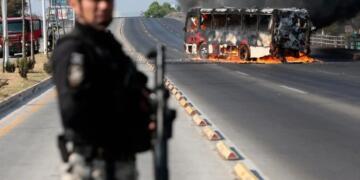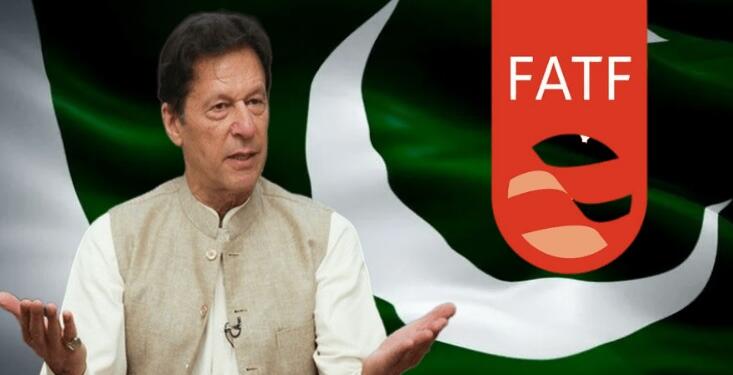Pakistan is seen as the hotbed of cross border terrorism. Thus, it was placed on FATF’s ‘grey list’ in 2018. The grey list is a sort of warning note for any country on it. But, Pakistan seemed least bothered about taking action against terrorist groups, despite being on the ‘grey list’.
In the aftermath of the country’ ignorance, it is on the verge of slipping down to the FATF blacklist.
Protest in Paris to demand Pakistan in FATF blacklist
“Terrorist Terrorist! Pakistan Pakistan!” This is the slogan raised by expatriated Afghan, Uyghur, and Hong Kong communities residing in Paris. Reportedly, the people from these communities are protesting outside the FATF office in Paris. The protest has been staged to call the watchdog to blacklist Pakistan. Notably, a number of French individuals have also joined the protest to show their support for the exiled protestors.
Pakistani journalist Taha Siddiqui has organised the protests. He had released video footage on Twitter that displayed individuals carrying anti-Pakistan banners. According to Siddiqui, “Pakistan’s role in money laundering globally, terror financing in the country and in neighbouring Pakistan, and its nexus with China that lobbies for Islamabad to be not held accountable are well known.”
Pakistan will soon be placed on the ‘blacklist’
Moreover, the speculations that Pakistan will soon be placed in the worldwide anti-terror funding and anti-money laundering watchdog’s ‘black list’ have set the market abuzz.
For those unversed, Pakistan has been on the FATF’s ‘grey list’ since June 2018 for the shortcomings in its counter-terrorist funding and anti-money laundering policies. It is pertinent to note that Pakistan’s imports, exports, remittances, as well as access to foreign credit have all been harmed as a result of the grey-listing.
Earlier in October 2021, the FATF had reported that Pakistan will stay on its ‘grey list’ until April 2022. It was decided in the three-day plenary session of the Financial Action Task Force. The global financial watchdog had asserted in its ‘High-Risk Jurisdictions Subject to a Call for Action’ paper that Islamabad needs to address its ‘other strategically important AML/CFT deficiencies.’
In addition to that, Global Strat View in an analysis paper had also stated that “Pakistani government policies may have breached FATF rules.” The Pakistani economist Dr Naafey Sardar was quoted as saying “If the FATF puts Pakistan on the ‘black list,’ economic penalties and other restrictive measures will be imposed.”
He further told that “This would be a major setback for Pakistan’s suffering economy, which has seen a $38 billion drop in GDP from 2008 to 2019 as a consequence of the FATF’s grey-listing.”
Why FATF is after Pakistan?
Pakistan is infamous for providing shelter to several terrorist groups, which the FATF wants to be prosecuted and punished. They are also the chief elements impeding the return of peace to war-torn Afghanistan once the United States fully withdraws itself from there. Pakistan is supposed to act against terrorist groups whose leaders and commanders include the Afghan Taliban, Haqqani Network, Lashkar-e-Taiba (LeT), Jaish-e-Mohammed (JeM), Jamaat-ud-Dawah (JuD), Falah-e-Insaniyat Foundation and al Qaeda and Islamic State.
The FATF has ordered the Pakistani government to complete three tasks which include: demonstrating terrorists financing investigations and prosecutions target persons and entities acting on behalf or at the direction of the designated persons or entities, demonstrating that terrorist financing prosecutions result in effective, proportionate and dissuasive sanctions and demonstrating effective implementation of targeted financial sanctions against all 1,267 and 1,373 terrorists.
But, no action has been taken yet. Despite the inaction, the Prime Minister of Pakistan, Imran Khan has been seeking the removal of the nation from the FATF’s grey-listing.
Well, it does not work like that. Either Pakistan will have to take action against the terrorist groups or be ready to soon enter the ‘blacklist’.
























